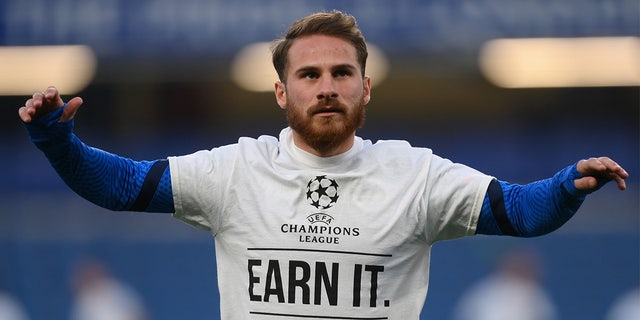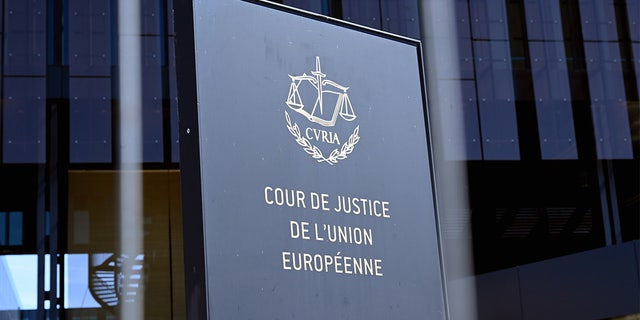European court deals blow to Super League claim of illegal UEFA monopoly
The organizers of a European Super League, a planned breakaway league for the most elite European soccer clubs, were dealt a fresh blow last week by the European Court of Justice (ECJ).
Advocate General Athanasios Rantos rejected the Super League’s claim that soccer governing associations UEFA and FIFA constitute illegal monopolies.
The non-binding opinion from Rantos, which precedes the full court’s opinion early next year, explained that “the FIFA-UEFA rules under which any new competition is subject to prior approval are compatible with EU competition law.” The full court sides with the advocate general a majority of the time.
It is the court’s most anticipated sports decision since the Bosman Ruling in 1995, which banned restrictions on foreign EU players within national leagues and established the right to a free transfer.
ARGENTINA SOCCER TEAM WELCOMED HOME BY THOUSANDS OF FANS AFTER WORLD CUP VICTORY
The Super League was announced last April by twelve clubs across England, Spain and Italy. The news sent shock waves throughout the sport. The clubs would exit the Champions League and play in a semi-closed league that would allow them to claim a greater share of club soccer’s billions for themselves. The founding clubs would have a permanent spot in the Super League regardless of their performance on the pitch.
Outcry against the move was swift, with critics zeroing in on the financial pragmatism of the clubs involved. UEFA, FIFA, top leagues like Serie A and leaders such as Boris Johnson issued statements of condemnation. Three planned founding members — Paris Saint-Germain, Bayern Munich and Borussia Dortmund — declined to join and also condemned the plans.

The public pressure prompted club after club to withdraw from the proposed league until only three holdouts remained — Barcelona, Real Madrid and Juventus.
At the time of the Super League’s launch, the organizers filed a lawsuit with a Madrid court, seeking protection from expected UEFA sanctions.
The Spanish judge granted a preliminary injunction, leading UEFA to suspend disciplinary proceedings, before referring the case to the Luxembourg-based ECJ, a constituent part of the CJEU, Europe’s highest court.
The advocate general argued that EU competition law “did not prohibit FIFA, UEFA, their member federations or their national leagues from issuing threats of sanctions against clubs affiliated to those federations when those clubs participate in a project to set up a new competition.”
“While the ESL is free to set up its own independent football competition outside the UEFA and FIFA ecosystem, it cannot at the same time continue to participate in FIFA and UEFA football competitions without their prior authorization,” Rantos said, pointing to the clubs’ desire to remain in La Liga, the Premier League and Serie A.
The clubs would have to break away entirely to pursue the project.
Rantos did condemn any sanctions under discussion targeted at players who have no involvement in the project, particularly as it relates to their exclusion from national teams.

3 FRENCH SOCCER PLAYERS SUBJECTED TO RACIAL ABUSE AFTER WORLD CUP LOSS
In a statement, UEFA explained that the opinion “reinforces the central role of federations in protecting the sport, upholding fundamental principles of sporting merit and open access across our members, as well as uniting football with shared responsibility and solidarity.”
FIFA also praised Rantos’ “recognition of FIFA’s exclusive rights to market international competitions organized by FIFA.”
Parties on both sides projected confidence on the ruling expected next year.
La Liga explained that it “trusts that the court judges will share the opinion of the advocate general when they publish their final verdict in the coming months.”
On the other hand, A22 Sports Management, a company formed to sponsor and assist in the creation of the Super League, took the opposite position.
“We believe the 15 judges of the Grand Chamber, who are entrusted with the responsibility to examine this case, will go substantially further and provide the opportunity for clubs to manage their own destiny in Europe,” A22 CEO Bernd Reichart said in a statement.
Reuters and the Associated Press contributed to this report.
Read the full article Here


